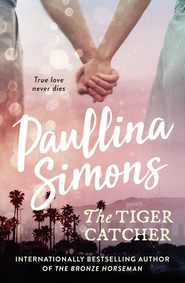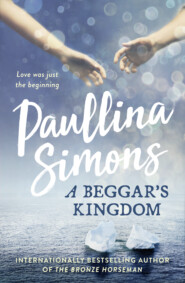По всем вопросам обращайтесь на: info@litportal.ru
(©) 2003-2025.
✖
A Song in the Daylight
Автор
Год написания книги
2018
Настройки чтения
Размер шрифта
Высота строк
Поля
Ah. Except Emily had a science quiz, and Asher a clay project on the Egyptians, and Michelangelo his beloved art class. So she cajoled them into rising, herself dreaming of falling back into the down quilts after they left for school.
Would it all be different had she let her children stay home for gray snow day? Even the inscrutable atoms moving doggedly on their inexorable path through the universe were occasionally given to unexplained and random swerves—jumps and diversions from the steady path, unpredictable yet permanent. Was letting her children stay home a break in the pattern of the atom? Or was sending them to school the break? There was no way to know.
They got ready for school.
The next forty minutes, a litany of supplication. “Asher, take your glasses from the bathroom.” “Em, remember your cello.” “Michelangelo, drink your milk.” “Asher, brush your hair.” “Em, I don’t know where your shoes are. Probably where you left them.” “Michelangelo, drink your milk, we have to go.” “Asher, take your Egyptian pyramid. Yes, the thing we were working on all weekend, that one.” They named him Asher because it meant happy. The placid boy looked like his mother, tall and lean with a steady gaze. “Asher, have a yogurt.”
“I hate yogurt, Mom. It’s disgusting.”
“Since when? You used to love yogurt.”
“Yeah, and I used to suck my thumb. Things change, Mom.”
“No, you can’t have a cookie. Have apple sauce. Emily, so put on a different pair of shoes. You must have another pair or two, don’t you?” Emily looked like her dad, but with a round face and pixie bangs. “Michelangelo! Finish your cereal.” They broke the mold to make their youngest son with his mystifying blond curly mop of hair and the most unaccommodating demeanor. “Riot! Stop jumping!”
Jared was long gone. Then the two older younglings were running through the wind, running up the long narrow street for the middle school bus at the corner of Bellevue and Summit. It was a three-minute Olympian sprint, for which they left precisely ninety seconds. Like Larissa said, getting to school, a (perhaps not such a minor) miracle. She herself limped down the driveway with Michelangelo in tow with his bookbag, though without a scarf or gloves (the absence of which would dub her a bad mother in the parents’ lounge, which she didn’t frequent). She drove him the mile and a half to Lincoln, parked and limped alongside him, holding his small cold hand.
The crossing guard asked her how her leg was. “Getting better finally?”
“Yes, thanks,” she said, though it wasn’t, not at all. That it was her left leg and not her right was the only good thing you could say about it. Otherwise she wouldn’t be able to drive.
Michelangelo was only ten minutes late. “Oh, good morning, Michael. So nice of you to stop by,” said the passing principal, and he turned, smiled impishly at his wan, waving mother, and gunned it down the hall even though he wasn’t supposed to gun.
It was in the hours between the missed Pledge of Allegiance and the afternoon food foraging that Larissa stood with her freshly made cardboard boxes near the windows where she put on her makeup. The leg was still too sore to stand on for long even after four weeks. Her bedroom faced the front of the house, and past the tall bare oaks she could see the rolling sloping hills of the golf course, and beyond them the highway, and the mall. The view so convenient: beauty and utility, both natural and man-made. Larissa placed her palm on the cold window, to feel the life outside.
Stepping away, she glanced at her books. They’d been freshly dusted and stood spines out and shiny. Ernestina was so meticulous. In three hours she and her team of two licked the house clean. Muy limpio. The books were never dusty. There was never a speck on them.
Or, for that matter, a dog’s ear.
Larissa had forty shelves of books in her house, not including those of her children, not including those of her husband. One for every year of her life. Twenty-four shelves held books she’d already read. The other sixteen …
In her bedroom four shelves housed just the books she was meaning to read. They had to be cast into categories finally, into a hierarchy of value, like castes of Punjabis, so it would be easier to know in what order not to read them. There was the non-fiction subsection, itself separated into memoirs, general interest, religion and philosophy. There was a section of commercial fiction, enough for the next two years. There was serious hardcover fiction she was planning on not reading in the next three. It had been four, five years since she touched a book on these shelves. She bought the books and cataloged them like an efficient librarian, hoping that someday she would have the time, find the time. Her house was impeccable and the children were in school and the husband would have dinner tonight, and clean white ironed shirts, and every project would be on time, and each drawer organized. How was she ever going to find the time to open One Hundred Years of Solitude, the annotated Lolita, The Executioner’s Song?
But on the plus side, there were no miscellaneous drawers in Larissa’s house! The bed was made like the presidential four-poster at the Ritz-Carlton. All five beds in the house. Beautifully made.
The books had no hope of being read. Jared, because he thought he was so funny, called them her non-reading list. The only books she attempted to read were the ones that came fresh in a UPS box to the red front door. She thanked Dominick, the UPS man, glanced over his head to the golf course across the narrow street, past the oaks, the manicured lawns like a valley, and then slammed shut the door and opened the cardboard box, efficiently discarding it to stay neat and on top of things. First she placed the book on her side of the bed where it had a slim chance of being opened. If it fell off the bed onto the treadmill, its chances weakened considerably, because on the treadmill the newly arrived books became covered by gossip magazines, by People, by Entertainment Weekly (though EW had a lot of words in it, didn’t it?); they became covered by used eye-makeup remover pads and discarded bras, by shirts and socks, cardigans, often earrings, sometimes earphones, three pairs of them, and printed pages of nonsense off the Internet on the latest current event she pretended she might catch up on under her Ralph Lauren quilt. Her side of the bed was the only place in the house where chaos reigned.
So today, Larissa took firm charge of the last unruly vestige of her ordered life. Book by book, shelf by shelf, she worked her way from top to bottom, placing the books inside boxes that would be donated to St. Paul’s Thrift Shop in Summit.
Had she read Lord of the Flies by William Golding? Through books I can be someone else, she thought. She didn’t need to read books about it; it was Lord of the Flies every night in her house. When reading books, she wanted to be far removed from herself.
Fear of Flying by Erica Jong? No; too much sex. It would just rile her up, inflame her unnecessarily.
Birdsong by Sebastian Faulks? Love! World War I! She knew nothing about the latter; it was perfect. It was also a little too removed. Reluctantly she dropped it in the box, recalling with a twinge of regret that that was why she had bought the book in the first place—so she could read about something she knew nothing about.
Lonesome Dove? Too Texan. Once she had wanted to read it. But once she had wanted to read everything.
Mrs. Dalloway by Virginia Woolf? Wait, she’d read that! How did that get up here? Yes, she was almost sure she’d read it. There was a line in it she kept coming back to. She devoted herself to that line until it was carved into her memory. But today, as she sat on the floor and leafed through the book in vain, Larissa couldn’t even remember what the line was about, much less the actual words. All she recalled was that it had meaning, and now she couldn’t recall a word of it, a whiff of it. Disgusted, she threw the book in the box, and then the thumb of her memory ran over I Am Legend by Richard Matheson. Jared loved that book when he was young(er).
The phone rang; she didn’t answer. The doorbell rang. Two men were delivering a dishwasher. She had to leave her book project half completed and babysit Chris the installer and his non-speaking companion, who shook their heads at her dicey kitchen cabinets and said the new machine might not fit without tearing up the floor. “But we’re jacks of all trades,” hefty Chris said with a smile. “We know what we’re doing.”
She smiled wanly.
She didn’t want to go out today. Hobbling down to the basement, she opened the freezer to see if there was any dubious forgotten meat she could defrost. Maybe they could go vegetarian tonight, fettuccine Alfredo. With bacon bits. Almost vegetarian, that is, if you didn’t count the chunks of smoked pig. She could mask the lack of food with garlic bread, except she didn’t have any bread. Or garlic. Or bacon bits.
The stainless-steel, smart-wash, nine-cycle machine with sanitized rinse and heated dry hadn’t arrived until noon. By the time the crack installers left—without tearing up her floor—it was almost one. She had planned to take a shower before she went out, but now there was no time. She had to pick up Michelangelo from school at 2:40. Besides, to have a shower, she needed Jared to tape her casted leg inside a plastic bag. She didn’t think asking Chris and his buddy, the jacks of all trades, to help a naked woman with a broken leg get into the tub was such a swell idea or qualified under one of the trades they were jacks of.
Though truth be told, if she had a choice, she’d rather have two unshaved strangers help her naked into the shower than stagger to King’s unwashed and unpainted.
6 (#ulink_3f56eac2-33e6-51ab-abd0-217aa26fed8a)
King’s, Ye Olde Market (#ulink_3f56eac2-33e6-51ab-abd0-217aa26fed8a)
But the children, the husband, they needed to eat. The children! What about the children? King’s was overrun. The entire population of Summit seemed to be clamoring for the tiny parking lot behind King’s, 20,000 cars trying to fit into 200 spaces. No one but she could do the math. She sat for exactly three seconds waiting to make the right into the concrete madness where every Escalade was honking at every Range Rover, every woman, her windows down, yelling at another, “Are you leaving?”
Larissa flipped her turn blinker, revving the engine to straight. She’d find another supermarket. She could just see herself getting knocked down by the crazy fur-clad lady in a green Hummer.
Trouble was, she didn’t know where else to go because she always went to King’s on Main. It was seven minutes from her house, two lights and a right, and had all the things she needed. The no hassle was important. Larissa worked very hard to make her life hassle-free, which is why the cast on the leg cast a pall on her otherwise sunny life. Was the broken leg the atom swerving its own way?
She decided to drive down Main Street to Madison, the next small town over, to find a supermarket there. It was only thirteen minutes away.
Over lunch last week at Neiman’s Café, Maggie had asked her, “If you could be any person in the world, who would you be?” and Larissa had answered one question with two: “Forever? Or just for a little while?”
“Does it make a difference?”
“Yes,” Larissa said. “If it’s just for a little while, I’d like to be a hundred different people. If it’s forever, then no one. I don’t want anyone else’s life forever.”
They’d spent the rest of the blissful lunch thinking of who they’d like to be. Someone else other than us, Larissa concluded, because I want to know what it’s like to live a life as far away from my own as possible, and Maggie, all mischievous eyes, had said, “Larissa, you are living a life as far away from your own as possible.”
Maggie was right. Summit was already someone else’s life, thought Larissa as she drove slowly, gaping at the little shops along the hectic business district, looking for a supermarket. She could’ve easily become a professional protester with Che, maybe gone to the Philippines with her. Larissa was already far removed from her very self. Maybe that’s why she wasn’t reading.
Oh, excuses, excuses. As many as the day was long.
She had asked Jared if he would want to be someone else, and he said cheerfully without a moment’s thought: Robert Neville in I Am Legend. Larissa thought it was such an odd thing for her husband to wish for. “Completely alone in the world,” Jared explained, “trying to eke out a meager survival, hoping to stay alive till daylight because bad things that wanted to suck out your soul came for you in the night. I would want to be a vampire hunter. With silver in my pocket. Just for one day.” And then he mad-jigged in his underwear through the bedroom.
On her left Larissa spied a “Grand Opening” sign for a Super Stop&Shop. She smiled (because Asher called the chain Stupid Stop&Shop) and flicked on her turn signal, waiting patiently for the oncoming traffic to pass.
This lot was spacious and empty. She parked over by the griffin trees. Through the chain link fence in front of her lay a small local cemetery. Tall granite tombstones were haphazardly spaced out amid the slushy ground, black on white. As she took the keys from her ignition and grabbed her purse, climbing out of her shiny Escalade, she remembered! Not all of it, not even the gist of it, but the heart of it, the Dalloway quote. Something about Thursday, Friday, Saturday, and then: “…that it must end; and no one in the whole world would know how she had loved it all.”
7 (#ulink_37745ac6-0df7-501c-949e-8251ab50bd20)
Burial Grounds (#ulink_37745ac6-0df7-501c-949e-8251ab50bd20)
She needed to buy only a few things; why was she still stumbling around the store thirty-five minutes later? After school today, Asher had an orthodontist appointment and a guitar lesson. And Emily had cello and voice. How did Larissa manage to allow the last few minutes of her afternoon to be vacuumed into aisles of self-rising flours and Cajun spices and new milk bones for Riot, into mozzarella cheese and new yogurt with antibiotic properties, which apparently she couldn’t live without? There were only three cashiers working, and one of them was on break, just leaving, or just coming back, i.e., incredibly slow. Larissa’s ankle felt sore, swollen. She couldn’t even muster a tight smile for the chronologically impaired cashier who looked all of twelve and wasn’t smiling much herself.
“Cash back?”
“What?” Larissa’s teeth were jammed together.











